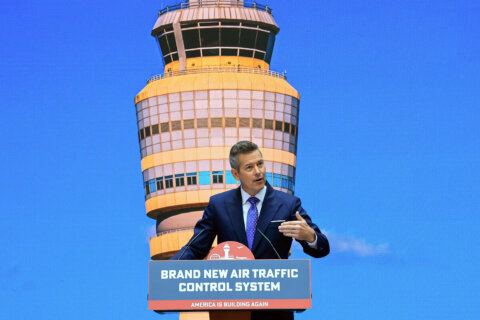A significant number of drivers involved in at least one crash in the last two years admit doing dumb things behind the wheel, but they do it anyway, according to new research from AAA.
People behind the wheel are speeding and texting — even when they think police might catch them.
“The frequency of drivers in the United States engaging in improper behavior is too high. While drivers acknowledge that certain activities behind the wheel — like texting — are dangerous, some do them anyway,” said David Yang, executive director of the AAA Foundation for Traffic Safety.
“We need to be aware of the serious consequences of engaging in these types of dangerous driving behavior and change course.”
Dangerous driving is drawing more scrutiny as areas throughout the U.S. loosen restrictions put in place to combat the coronavirus pandemic.
- 50% of those involved in a recent crash admit to talking on a hand-held device while driving in the past month, compared to 42% not involved in a crash.
- 43% of those involved in a recent crash admit to texting while driving in the past month, compared to 27% not involved in a crash.
- 39% of those involved in a recent crash admit to running a red light in the past month, compared to 30% not involved in a crash.
More alarming is that, according to the research, those involved in crashes don’t change their behavior, according to AAA.
People who said it was very or extremely dangerous to drive when you’re so tired it’s hard to keep your eyes open (96%) or drive while texting/sending an email (96%) were the same ones who engaged in those practices. They also read (43.7%) or typed (42.7%) text messages even when they thought they might get caught by police
There is some good news.
AAA found that drivers are doing dumb things behind the wheel a little less often than in 2018.
“Drivers who said talking on a hand-held cellphone saw the most significant decrease, down from 52.1% to 43.2%, while drowsy driving and texting both fell by 3 percentage points,” the research found.
“If you point to the dangerous driving behaviors of others that you sometimes do yourself, then you are the problem,” said Jake Nelson, AAA’s director of traffic safety advocacy and research.
“I’m encouraged to see a slight shift toward safer driving behaviors, but we have more work to do. Stay focused on driving. This is a must,” Nelson said.
So, in short: Drive less like you’re on a “Highway to Hell” and “Take It Easy.”
Bad driving in the D.C. area isn’t exactly breaking news, but it somehow got worse during the coronavirus shutdowns and led to a dramatic rise in excessive speeding at a time when more people are walking and riding bicycles.
AAA Mid-Atlantic said in May that local police departments were cracking down on aggressive drivers excessively exceeding the speed limit during the shutdown.
According to AAA, Virginia State Police stopped at least eight drivers exceeding 100 mph on Saturday, May 2, with one of those drives clocked at 132 mph. Maryland State Police troopers ticketed one driver for driving 136 mph on the Capital Beltway.
In Montgomery County alone, AAA said speed camera violations exceeding 100 mph are up 500% between April 26 and May 1, compared to that same period last year.
In the District, AAA cited a Forbes study that said despite an 80% drop in congestion, “the number of speeding tickets issued has reportedly jumped by 20%, with violations for going 21-25 mph over the limit up by around 40%.”
AAA recommends these safety tips:
- Out of sight, out of mind. Stow your smartphone away, turn it to airplane mode or activate call/text blocking features like Apple’s Do Not Disturb.
- Slow down. Drivers tend to overestimate time saved by speeding. You’d have to travel 100 miles to save roughly 5 minutes, moving at 75 mph instead of 70 mph. Speed kills and isn’t worth the cost.
- Stay alert. Stop driving if you become sleepy because you could fall asleep at any time. Fatigue impacts reaction time, judgment and vision, causing people who are very tired to behave in similar ways to those who are drunk.
- Only drive sober. If you consume marijuana, alcohol, or use potentially impairing prescription medications, then don’t drive. And if you’re going to drive, then don’t consume these substances. If you are taking prescription medications, visit Roadwise Rx to learn whether they can impair driving.
- And always wear your seat belt.
WTOP’s Rob Woodfork contributed to this report.








